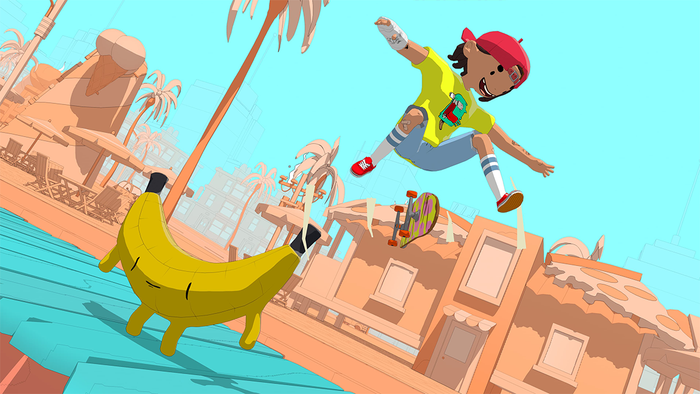Slide Piece Postmortem
A look back at Small Fox's first game, Slide Piece.

Small Fox was founded by Harold Absalom (that's me), as a way to get some experience in the games industry, and hopefully make some money. My first release was Slide Piece, a reaction/timing based sort of game for mobile phones. Now that it's finally on the App store, I'm looking back at how things worked out, and what could've gone better.
It should be noted that Slide Piece was originally written in Java, using the Android SDK, in about a month. Shortly after, it was re-written in C++, using the Marmalade SDK, so that it could be released on iPhone, as well (I don't own a Mac).
What Went Right
1. Kept The Core Mechanic Simple
I knew right from the start that I wanted to come up with one simple mechanic, and base the entire game around that. Slide Piece certainly does just that.
For those who haven't played it, a number of "pieces" move along pre-determined paths, at increasing speeds. The player can touch them, to stop them moving, but only one piece can be stopped at a time.
Once people have seen it be played, it makes sense to them, almost instantly. I'm happy that the mechanic fits into the technology so well, and seems fairly original.
2. Re-Wrote The Code
Having to re-write the code in C++ really helped out when polishing/bug-hunting.
For a start, I'm a lot more experienced with C++ than with Java, and I was glad to be back to writing in what feels like a more "natural" language (to me). When I wanted to add some odd behaviour, it was no longer a matter of getting a textbook out, to work out how to do it. Even though programmers like to think that knowing a language is second to understanding how to write good code (and it is), I could not believe how much more comfortable I was getting back to C++.
Another important lesson I learned is, it's easier to write the code once you've already written it. This sounds odd, but, bear with me here. I can remember reading elsewhere that it's a good idea to throw away your prototypes after you've written them, and start the actual game again, from scratch. Your design choices, once you know the problem more fully, will be much better informed, and you can write better code. Since the Java version was built right off of the prototype, it felt good to throw it out, and get rid of a couple of poor design decisions.
3. Outsourced Music
While I sure don't mind listening to music, creating it is a completely different story. Thankfully, a good friend of mine, Michael Teuma, offered his services, to help me fill in an often overlooked part of game development.
The result is original music for all four levels that sounds pretty darn snazzy, if I do say so myself.
What Went Wrong
1. Wasting Time
When I set out to make Slide Piece, I certainly didn't foresee myself working on it for quite so long. I'd never really had a problem with distractions doing assignments from university at home, so, why would this be any different? When you wake up and move six feet from your bed to your desk, and not much anywhere else, it becomes very different.
By the end of the project, I'd learned some ways to get around wasting time. If I was slowing down in my work, I'd go for a walk, never stop to read a blog. I'd put a board with the tasks for the day up when I started working, and make sure to end the day with a video game. Keeping work time focused on work, and keeping work completely out of leisure time, is essential for sanity.
2. Re-Wrote The Code
I know I said that this "went right", above, but I really think that for a small studio, it's worth more to have more games out there, than to spend time re-writing old ones. If I could go back six months, I'd leave Slide Piece on Android, and get to work on game number two, which would've been a Marmalade/cross platform title.
3. Marketing
I'm still not sure how to market an indie game. Since you're reading this, perhaps one of my strategies is working (write a blog about Small Fox). I've got a Twitter that I'm not too active on (never really been a Twitter guy), and a Facebook page that seems to only consist of my friends.
I learned (though am yet to act upon the knowledge) that good marketing is agressive marketing. Sure, word of mouth is great, but, you're going to need to get your game to people who want to talk about it.
This is probably my least improved area, and I can't wait to have another go, when I come back with a new game that I can feel more confident about.
Conclusion
For a first game, I'm happy with the game itself. The development time was too long, and the sales are too low (so far), for me to call it a real success. I don't think the first release of a new business is often much of a success, though. Slide Piece makes a good springboard into Small Fox's next endeavour.
Data Box
Developer: Small Fox
Release Date: Jul 20, 2011 (Android, v1.0) / Dec 1, 2011 (Android, v2.0) / Feb 16, 2012 (iOS)
Number of Developers: 2
Length of Development: 1 month (v1.0) / 6 months (v2.0)
Development Tools: Eclipse (v1.0), MSVC++, Marmalade, GIMP, Ableton Live.
Read more about:
BlogsAbout the Author(s)
You May Also Like







